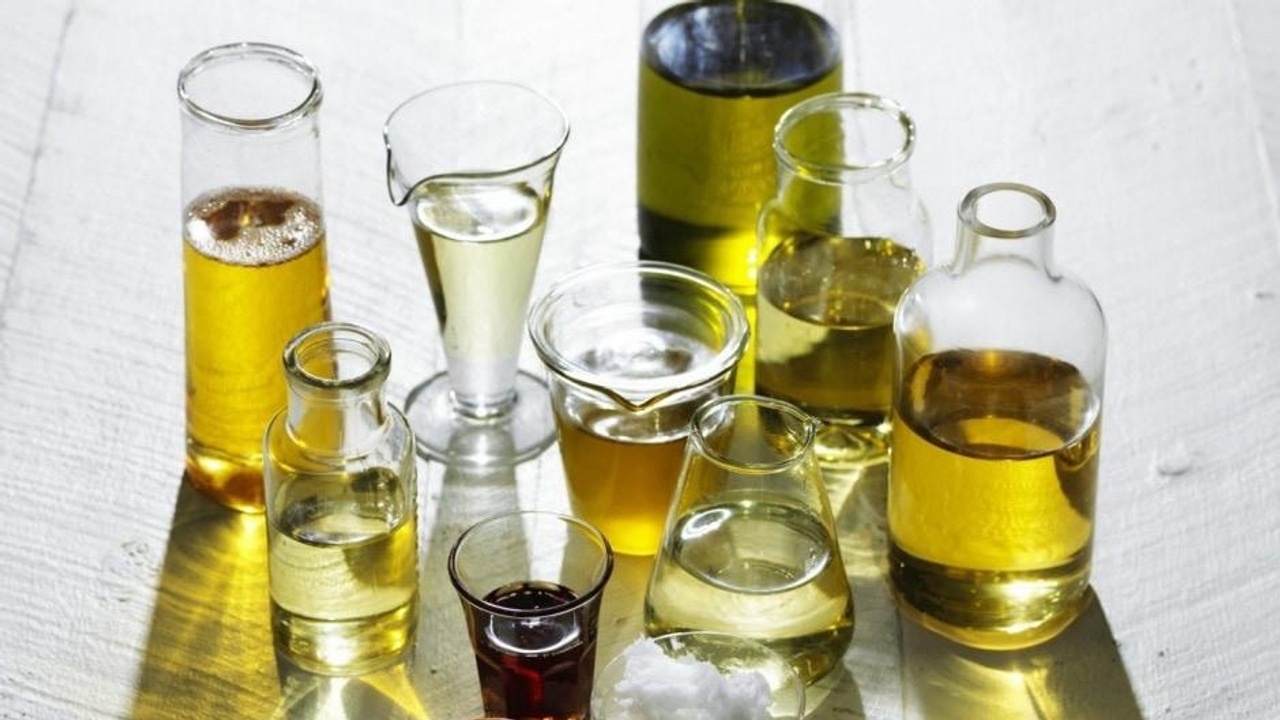What Cooking Oil SHOULD I Use?
Apr 15, 2021
If there is one question that comes up again and again for me, whether it is at a live event or online, it always appears. What cooking oil should I use?
My answer if always the same - for 98% of all cooking I advise using Olive Oil, for the remaining 2% that would be very high temperature cooking or something with a long cooking time, then coconut oil. Thats it. Its pretty simple, but lets explore why!!
Fatty acid balance
Anyone that has followed my work will have heard me talk about this at some point. If you are a newbie….here goes.
Fatty acids are a group of vitamin like substances that are found in the fats and oils we consume in our diet. There are 4 main fatty acids of note - Omega 3, Omega 6, Omega 7, and Omega 9. Out of these, two are deemed essential, meaning we MUST get them from our diet.
Fatty acids have two main roles to play - they are either used as structural materials in areas such as the eyes and the nervous system, or they are the metabolic precursors to key compounds such as the prostaglandins.
Prostaglandins main role is regulating the inflammatory response. There are three types of prostaglandins - Series1, Series 2, and Series 3. Some switch off and reduce inflammation, and others switch on and exacerbate the inflammatory response. Series 1 is mildly anti-inflammatory, and Series 3 are powerfully anti-inflammatory. Series 2 on the other hand switch on and ramp up inflammation. Different fatty acids will be metabolised to form different prostaglandins - and this is a KEY POINT.
The omega 3 fatty acids EPA and DHA form the anti-inflammatory prostaglandins. DHA tends to go down the pathway that forms the mildly anti-inflammatory Series 1 prostaglandins, and EPA forms the powerfully anti-inflammatory Series 3 prostaglandins. Omega 6 on the other hand are metabolised to form the powerfully pro-inflammatory Series 2 prostaglandins.
You should be able to deduce from this that more omega 6 can ramp up inflammation, and more omega 3 can reduce it. You got it!
Why does this matter? Well, I have discussed this in a previous blog post HERE , so have a read of that to get an insight into why increased inflammation can be a problem.
This, is where my justification for oil use comes in to play…
Why use the oils I recommended?
So, we have established the facts about fatty acids, and after this post you are going to have a look at the previous blog post to see why increased inflammation is a problem. So now we have that background, lets get back to the point.
For the past 4- decades we have been told to avoid saturated fat like the plague, and that it will kill us in one sniff. Instead we were told to opt for the ‘heart healthy’ vegetable oils and margarines. Oh dear oh dear.
When this advice kicked in, we took it en masse. The problem is that most vegetable oils like sunflower oil, corn oil, soy a bean oil etc etc are composed of MASSIVE amounts of Omega 6 - can you see what is coming?
We DO need a small amount of omega 6 every day for neurological and hormonal health, but once we go past that needed amount, we shuttle any extra down a pathway that manufactures something called arachidonic acid. Small amounts of this are used in the brain, the remainder feeds straight into the pathway that creates the pro-inflammatory Series 2 prostaglandins.
On average we are taking in around 23 times more Omega 6 per day than we need, due to our shift towards vegetable oils.
Olive oil on the other hand does have a small amount of omega 6 in it, but its most dominant fatty acid is Oleic acid, and Omega 9 fatty acid that has no influence on the inflammatory mediators.
By switching over to olive oil, you will drastically cut your omega 6 intake - simple as that.
And the 2% of coconut oil that I use - this is for very high temperature cooking over long periods of time (think roast potatoes for example). This is because for most cooking, olive oil is perfectly fine and stable. It is. Forget the old wives tales and half baked stories that a bit of heat will make it implode the Universe. General day to day stove top cooking it is totally fine. BUT, take it up to high enough temperatures, for long enough, then you will get some degradation, trans fat formation, and free radical formation.
Coconut oil, as it is a saturated fat, doesnt yield trans fats when taken to high temperatures. Thats it. Thats why I use it. For the record, I dont buy a lot of the extreme claims made for coconut oil. There are no panacea’s, just pieces of an incredibly intricate puzzle.
So, I hope this sheds a little light on this subject. Any questions, please write them below and Ill do my best to help.
Stay Informed
Get exclusive, science-backed insights straight to your inbox. No fads. No nonsense—just real, actionable information to support your journey to better health.






